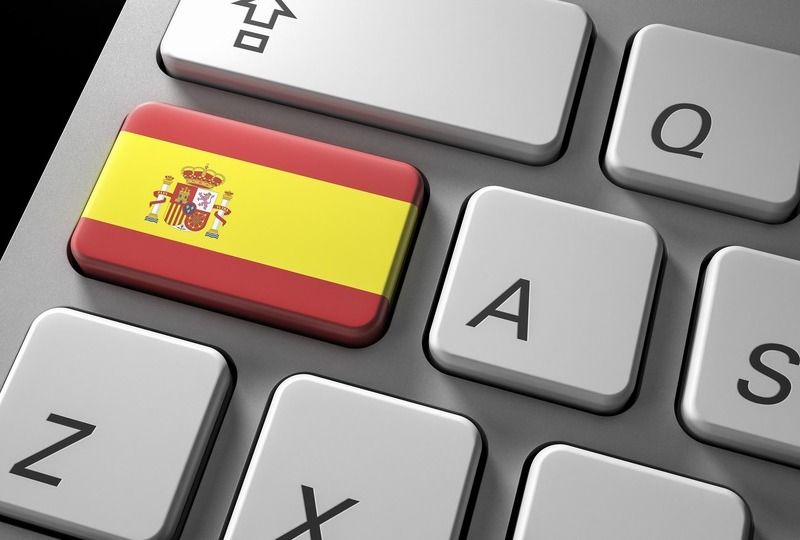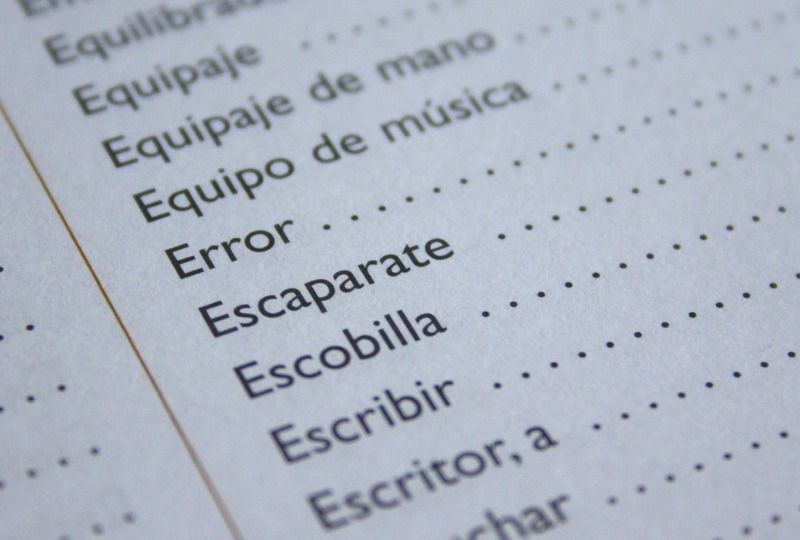Abbreviations and Texting Trends in Spanish

Language is ever evolving. It’s a living, breathing entity in constant change. It can feel overwhelming to try to keep up with trends and new terms in our own languages, let alone the ones we’re learning. Luckily, there are ways to study these new words on our own and stay up on the times.
The best way to stay at the top of your game while learning a foreign language is by speaking it with native speakers. Traveling and seeing how the language is being used day to day is always going to be the fastest way to learn. But if traveling is not an option or you’re preparing for an upcoming trip, self-study can be a great tool in your language learning toolbox. In this article, I’ll go over register, texting trends, and slang in each Spanish-speaking country to have you speaking like a native!

Formal vs Informal Spanish Pronouns
In linguistics, register is the degree of formality being used when someone is speaking. There are many ways to make your speech sound formal or informal in Spanish. The main way is through the use of formal and informal pronouns and verbs.
The formal Spanish pronoun usted is used to refer to one person. It’s a great term to use when speaking to a boss or business associate, in-laws, elderly people, and in general, anyone that you would like to show additional respect to. Verbs that are used with usted must be conjugated in the appropriate form, which is the same one that is used for él and ella. The informal Spanish pronoun tú is used informally to refer to one person. It is often reserved for friends, close family, peers, and any informal interactions.
When talking to groups of people, vosotros is the informal pronoun used in Spain. Ustedes is the formal pronoun for groups of people. This distinction is only made in Spain. In Latin America, ustedes is used for both formal and informal groups of people.
When you’re texting and using abbreviations and slang, it is likely that you will be using the informal tú. If you’re in Latin America, perhaps group messages could use ustedes, and if you’re in Spain, vosotros would be used for groups of people. People from Spain understand that the rest of the Spanish-speaking world uses ustedes as their informal pronoun for groups of people. It may sound a little strange to use ustedes informally in Spain, but it would be understood.

Texting Abbreviations and Single Letters as Words
Spanish texting culture is rich and diverse. There are a multitude of abbreviations used regularly. Here are a few of the most common abbreviations you’ll see in text messages across Spain and Latin America:
| Slang | Spanish | English |
|---|---|---|
| Tkm or tqm | Te quiero mucho | I love you so much |
| K or Q | Que | What or that |
| Fds | Fin de semana | Weekend |
| Cdt | Cuídate | Take care |
| Pq, pk, xq, or xk | Porque / Por qué | Because / Why |
| Xfa | Por favor | Please |
| Kn | Quien | Who |
| Maso | Más o (menos) | Ok, so-so |
| Tmb | También | Also |
| Jaja | — | Haha |
| Pa | Para | For |
Here are some things to note while you study the list of texting abbreviations.
-K and Q are interchangeable and typically mean que.
-X can be a replacement for the sound ch, as in mxo (mucho) or it can mean por. This is a reference to mathematics. The multiplication sign is pronounced por in Spanish.
-The H can be dropped at the beginning of many words. Hace, for example, can be written as ace.
-When writing a word that can be either masculine or feminine, you may us the @ symbol to represent either male or female. For example, chic@s would mean either chicos or chicas.
-Some numbers can be pronounced and serve as parts of words. For example, salu2 would be read as saludos because 2 is dos in Spanish.
-Accent marks are not required. When texting, context clues will help people figure out what they need to know without the use of written accents.

Slang in Spanish-Speaking Countries
Each Spanish-speaking country has its own set of slang terms. Here, I will go over a few of the most commonly used slang for each country.
Argentina: Che is perhaps the most common slang term. It means “What’s up?” Boludo means “dude”, and these terms are often combined to make “¿Che, boludo?”
Bolivia: ¡Pucha! is a term used all over the Andes. It roughly means “Damn!” Another Andean term is chela, which means “beer”. When you drink it, you can use the term chupar, which means “to suck” but is used to mean drinking.
Chile: Chilean Spanish can be hard enough without the addition of slang. There are plenty of slang terms to learn here! La micro refers to a city bus, a term that can be used in other Andean countries, as well. The term rico means rich and can refer to any food being delicious, but in Chile, it has an additional meaning. It can describe an attractive person.
Colombia: Parce is a Colombian word for friend. It can also be written as parcero for men or parcera for women. The word vaina might be one of my favorites. It’s used in a few Spanish-speaking countries and means thing or stuff. If you’re from the Philadelphia area, it directly translates to jawn!
Costa Rica: Pura vida is the most iconic slang term from Costa Rica. It literally means “pure life”, but it’s used as a way to greet people, say thank you, you’re welcome, and more. Tico is another popular term in Costa Rica. It is simply a word for someone from Costa Rica. The male version is tico and the female version is tica.
Cuba: A popular slang greeting in Cuba is ¿Qué bola?, which means “How’s it going?” In Cuba, you may also hear the word máquina used to refer to cars. It means “machine” in other Spanish-speaking countries.
Dominican Republic: Dominican slang is all about living the good life. The word tranqui is an abbreviation for tranquilo, or calm. The term una fría literally means “a cold one” and is used to refer to a beer.
Ecuador: Slang words from Ecuador are heavily influenced by the Andean region and quechua, like in Bolivia and Peru. The word chapa is used to refer to a police officer, but don’t say it to his face as it’s not the most positive word. It comes from the Quechua for “to watch or take care of”.
El Salvador: ¡Quiubo! is a way to say hello in many Central American countries, including El Salvador. The word chafa can come in handy while you’re out shopping. It is used for anything counterfeit or of poor quality.
Guatemala: In Guatemala, they use the word chapín for men or chapina for women to describe themselves as Guatemalan. Another common slang term is ¡Aguas! which means “Look out!”
Honduras: In Honduras, the word alero or alera refers to a best friend. It comes from the word for wing, so you can think of a wingman. The term cheque means ok. It’s a way of confirming things, like saying “Check!” in English.
Mexico: There are many slang words in Mexican culture. The words chido and padre both mean cool and are used frequently. Another common term is la neta which means “the truth” or “really”.
Nicaragua: The word chunchada in Nicaragua is like the word vaina in Colombia or jawn in Philadelphia. It means “thing” or “stuff”.
Panama: In Panama, the slang term ¿Qué sopá? means "What's up?" Another slang term is pelao or pelado, and it refers to a person who’s name you don’t know. The o can be replaced with an a for women. It means “guy” or “girl”.
Paraguay: A common term in Paraguay is jopará, which is how they refer to the main indigenous language in the country, Guaraní. Some of their local terms come from this language, such as ahata-ayu, which is a way to say goodbye to friends and family.
Peru: In Peru, bacán is the most common way to say “cool”. It’s a Peruvian slang term that is used frequently. They also say al toque, which means “right away”
Spain: Some common slang terms in Spain are vale, guay, and tío. Vale is a way of saying ok. Guay means “cool” in Spain. The word tío means “guy” and is used for everyone from a stranger to a close friend.
Uruguay: The word bo in Uruguay is used similarly to che in Argentina. It’s used to get someone’s attention. The word ta in Uruguay means “ok” or “fine”.
Venezuela: The most common slang term in Venezuela is chévere, which means “cool”. Another common term is pana, which means “nice” or “friendly”.
Puerto Rico: The word boricua is a source of pride for Puerto Ricans. It is used to refer to anyone who is Puerto Rican. The feminine version would be boricua. It can be seen on shirts and flags, as national identity is taken seriously in Puerto Rico.

Now Go Practice These Texting Trends!
As I said earlier, slang terms and abbreviations are constantly changing with the times. The best way to stay ahead of these changes is by immersing yourself in the culture. Go through Spanish-language social media pages, reach out to Spanish-speaking friends, and if at all possible, visit a Spanish-speaking country to put your skills to the test. Speaking the language is always going to be the best way to improve, and Speechling can help with that. Take advantage of as many resources as you can, and you’ll be speaking Spanish and using slang words in no time!